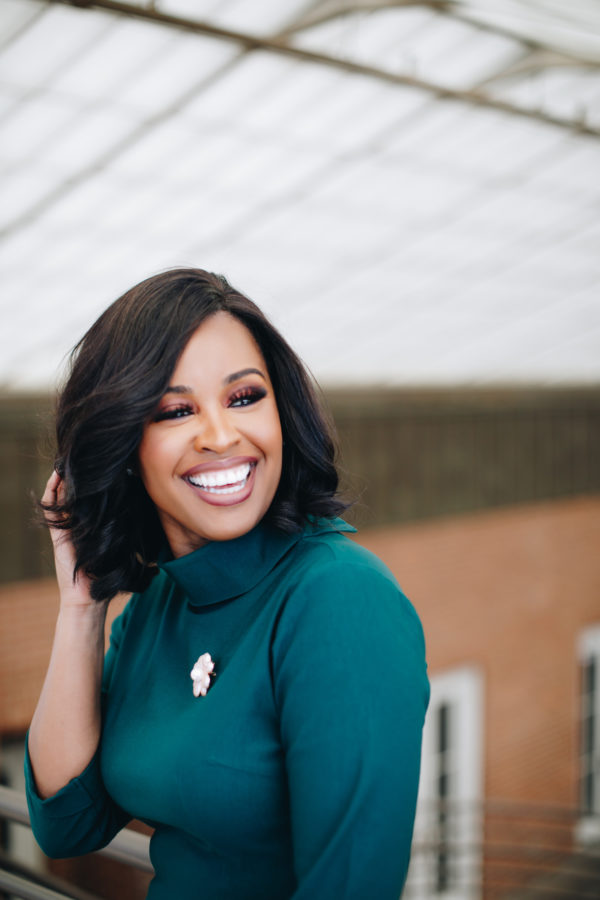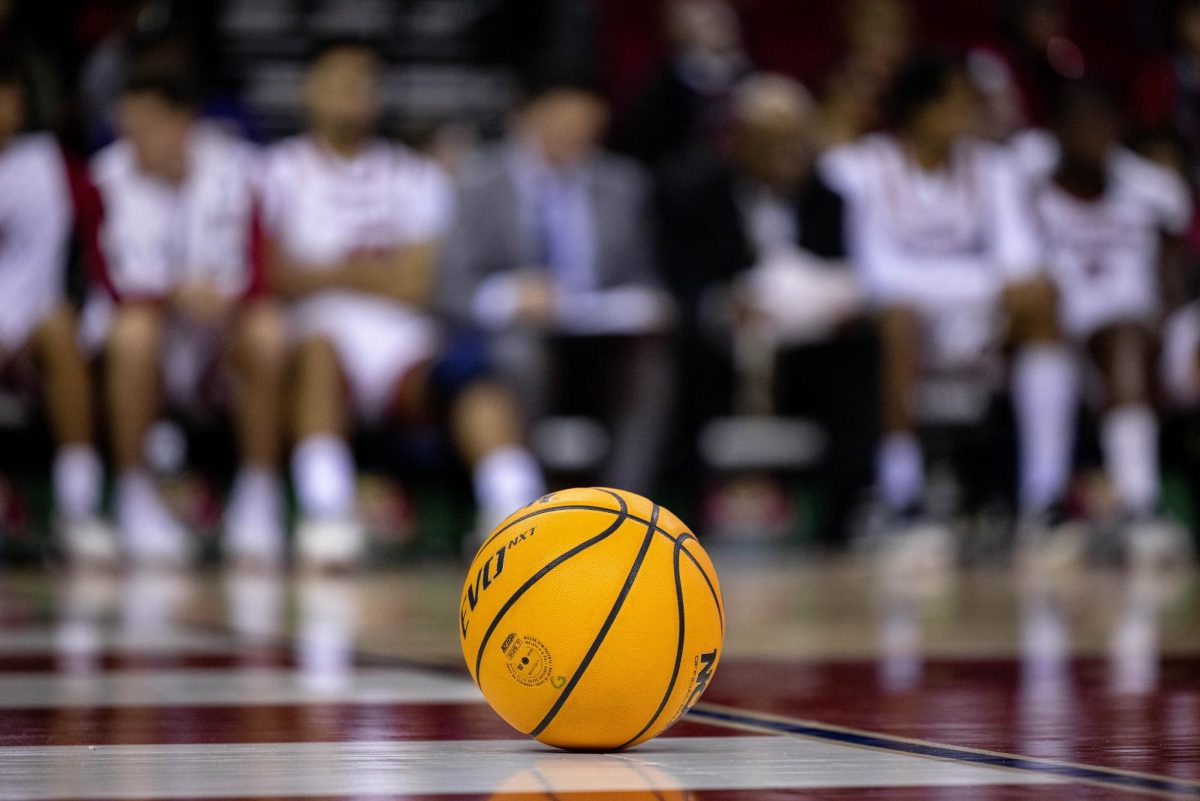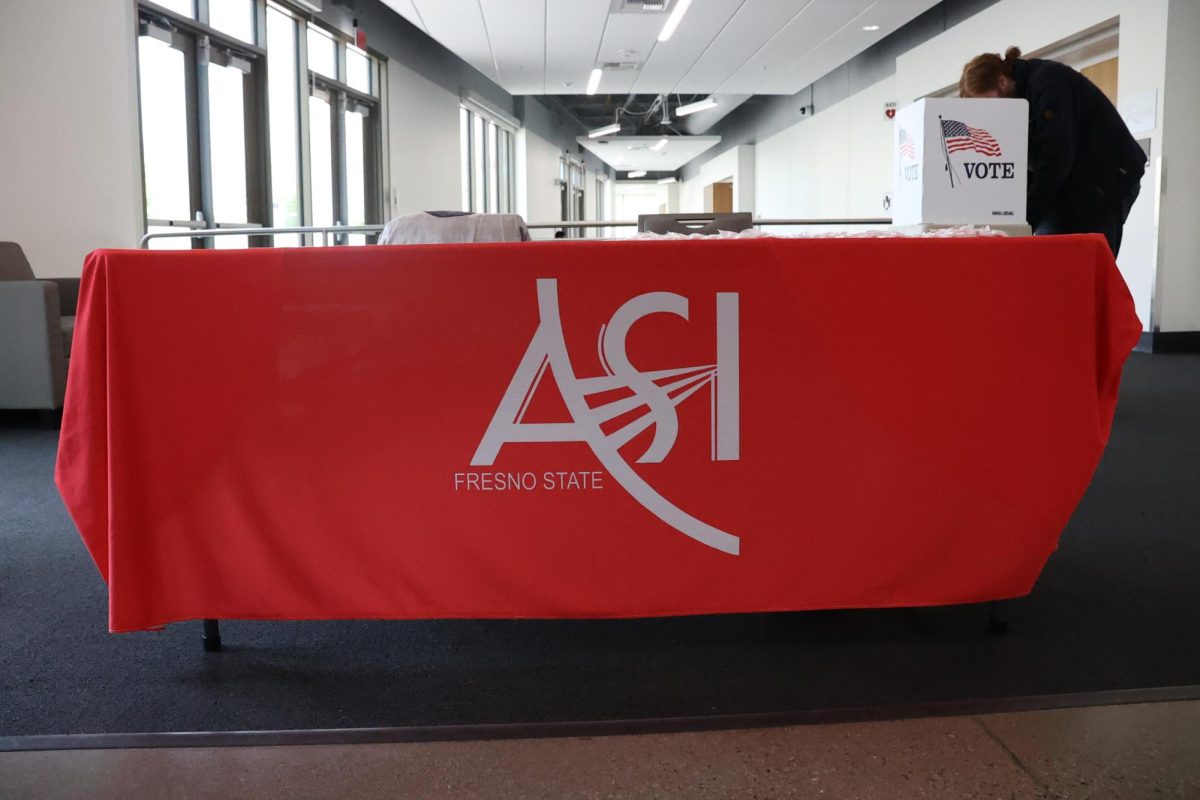Fresno State’s inaugural diversity officer gets candid about the decisions that led to moving away from home
Rashanda Booker was born in Oxford, Mississippi and raised in Baton Rouge, Louisiana. (Courtesy of Rashanda Booker)
Apr 10, 2023
As the university’s inaugural diversity officer, Rashanda Booker quickly became a mentor and voice for students who needed guidance. Booker said before that she wants to do more than increase diversity.
Despite her presence and seemingly easy transition into that leadership role at Fresno State, Booker told The Collegian it was a journey to get to where she is now because she had to be that role model for herself as a kid in Mississippi. She said it’s surreal helping students because she didn’t want to go to college, but eventually she would soon find out that coaching others would come naturally for her.
Booker is the first in her family to get a degree. Some might be honored to be a first-generation college student, but Booker said she was pressured to be that successful daughter.
As a child, Booker’s only goal was to become a professional dancer.
“In my mind, it was just all about dance and fun and music, and I never really foresaw having such a very structured emotional job,” she said.
Her family had other ideas and expected her to go to college and pick a major that would grant her a notable place in society. Booker was devastated to leave her hopes of dancing behind but was determined to accomplish the path she was given.
“I grew up in a very impoverished area in Mississippi, so I think my younger self didn’t really envision what college even meant because just trying to be a productive member of society and to live was just my major focus and watching people around me struggle financially,” she said.
“I think for my family, it was more about ‘This is what we want for you.’ It’s just to be able to have a good life and to get the education, and whatever you want to do with that, you do that,” Booker added.
It was one of the challenges that comes with being honest about anxiety and depression from the generational trauma and feelings of little support.
“I think that most of my life I didn’t have that opportunity to [be recognized] and so now as an adult, I tried to just be as authentic as possible to let other people feel like [they’re] No. 1. It’s safe and it’s ok,” she said.
Her personal story spans to more than feeling the pressure of her parents. Booker said that she was very isolated and kept to her own communities, often having a hard time venturing out of her comfort zone. “Growing up in Louisiana, I feel that I didn’t experience as much as I could have,” she said. “As I’ve gotten older, I’ve been able to branch out and it’d be more but at home in Louisiana, growing up, I was just in my comfort zone.”
She enrolled at Southeastern Louisiana University in 1997, picking psychology as it was a major considered “straight out of a book.”
“I didn’t know what I wanted to do and even when I enrolled in college and undergrad in 1997, I still didn’t know and I just kind of picked a major out of a book. I was like, ‘Oh, I think I want to major in psychology,’” she said.
Booker’s relationship with her family was shaped by their expectations of her.
“I was challenged by my family to get a real job,” she said. “That’s why I loved working with students. The majority of my career has been with students because I try to take that pressure off of students, and a lot of times, it’s because of society and because of their families.”
Her parents never talked to her about what career she should take, as long as she succeeded in it.
Booker went on to receive a bachelor’s degree in liberal arts and a master’s degree in organizational communication from Southeastern Louisiana University. She earned her doctorate degree from Louisiana State University.
Throughout her life, Booker said that it was hard for her to hold a steady job. If she got tired of it or knew it wasn’t going to work out, she was quick to cut loose from it.
Randy Moffett, the University of Louisiana system president, inspired Booker.
One day when Moffett was on campus, Booker was dressed in a crown to celebrate her birthday. Moffett took notice and approached her with an opportunity to become a minority recruiter. Booker was ecstatic to be the reason high schoolers enrolled in college.
“25 years later, I think that being in higher education, being first gen and not really having a complete plan, like some people are like, ‘Oh, I’m gonna do this, I’m gonna do that,’ I didn’t have that. I just kind of let life shape it for me,” Booker said.
Eric Summers, the current vice president of Student Affairs at Louisiana State University, was another individual who inspired Booker.
Summers, who calls Booker “Shanda,” said that her personality and determination is what struck a friendship between the two. “She was amazing because she has a way of drawing people toward her. Our numbers, of course, went up because students loved her. She attracted some students that they just follow her around campus like little puppies, and they have gone on to do great things,” he said.
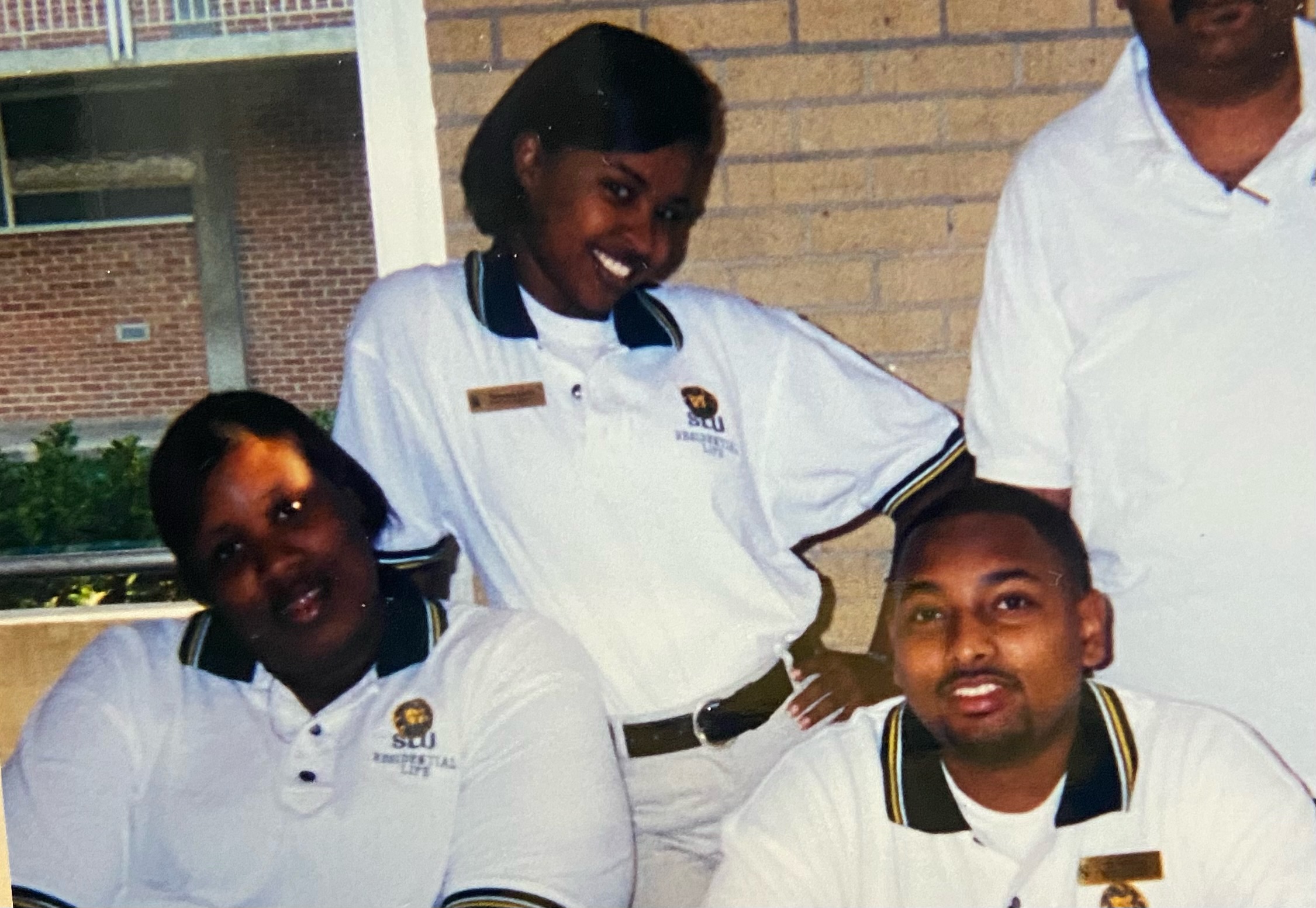
The two first met when Booker got hired as a lead residential assistant while Summers was the residential coordinator. When they worked alongside each other, Summers said that she would often come to him for advice.
Summers said that Booker would ask him for advice all the time to the point where she no longer appeared as coworker, but as a little sister to him.
“I was very proud of and that’s the one thing I really encouraged her to do,” he said. “‘You should be motivating people. you should be coaching people. That’s what you do, particularly women.’”
Summers said he fondly remembers her for her quick wit and her ability to easily coach others with her jokes and ability to make people smile.
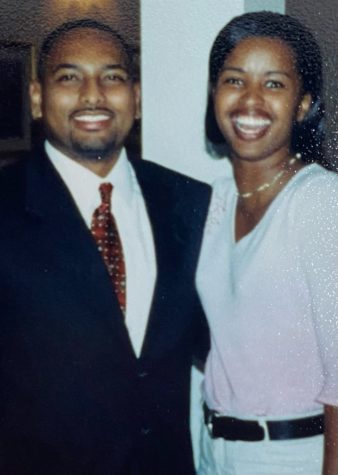
Booker continued to establish herself with her love for motivational speaking. In 2014, she created Premier Inspirations, a coaching firm for individuals who desire positive progression.
Premier Inspirations has since been on a hiatus since 2018 due to her actively pursing a doctorate at the time, but Booker has since published a book that details many of her life’s hardships titled, “Groundlessness: A Journey from Pain to Peace.”
In her book, she tackles themes of spirituality, her generational curses and the pressures of society. After her own hardships, she wants to be the one to help those get back on their feet.
Booker is not one who shies away from discussions about mental health. While she suffered anxiety and depression as a college student, in middle age she still deals with those challenges.
One of those hardships is her getting diagnosed with polycystic ovary syndrome (PCOS) and learning how to live with it five years later. One of the symptoms of PCOS is depression which Booker hopes to continue normalizing through the importance of mental health awareness.
“It’s one thing to live something and it’s another thing to see it in black and white, and I was typing and there were times where I would type and just lose it. I cry like that happened to me, you know. And my brother, and my best friend really helped me through it,” she said about writing “Groundlessness.”
“A colleague who I graduated with, he said ‘The fact that you don’t want to share it, but we know that you need to share it because not just for you, you know you decided to do this for someone else.’ Everything that you do is always to help someone else,” Booker said.
Now at Fresno State, Booker has expressed many times that her transition has not been easy and that she had hesitations moving from the South to the Central Valley.
Booker credits Fresno State’s president Saúl Jiménez-Sandoval for recruiting her, and also for Fresno’s State nine consecutive winnings of The Higher Education Excellence in Diversity Award. The HEED Award is given to universities that have excelled in diversity inclusion.
As the university’s first diversity officer, Booker’s responsibilities are to create racially inclusive environments and to implement fair and equal practices. Her personal aspiration for her position is to go beyond diversity and to make sure students and faculty have a part in advancing Fresno State.
“Dismantling systems of oppression is hard, because these institutions were created centuries ago. And it takes time to change. I think that’s difficult because people want immediate gratification,” she said. “I think it’s tough because there’s no direct way to do it. It has to be in multiple areas in a collaborative effort.”
Booker will host a town hall meeting in the Table Mountain Reading Room on April 26 from 1-2 p.m. The town hall is open to students wanting to connect with Booker.




